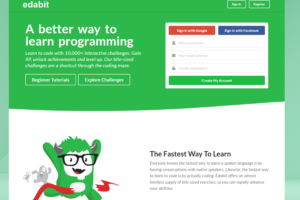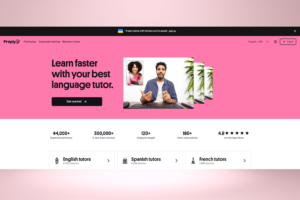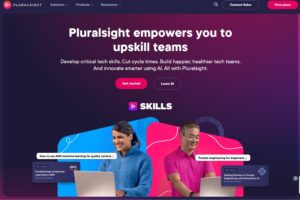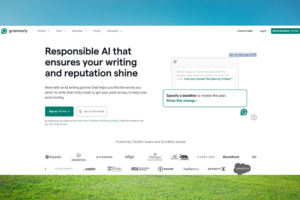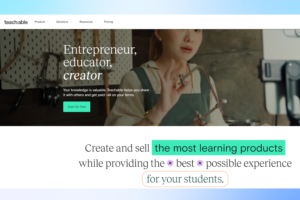Table of Contents
ToggleIntroduction to data analytics coursera

About coursera.org
What is Coursera?
Coursera is a global online learning platform that offers anyone, anywhere access to online courses and degrees from leading universities and companies. It was founded in 2012 by Stanford University computer science professors Andrew Ng and Daphne Koller.
Key Facts About Coursera
- As of 2023, over 300 universities and companies offer courses through Coursera, with approximately 7,000 courses available.
- Coursera has 113 million learners and serves more than 7,000 campuses, businesses, and governments worldwide.
- The platform offers a variety of learning formats including courses, Specializations, Professional Certificates, degrees, and tutorials.
- Many courses are free to audit, while paid versions include graded assignments, instructor feedback, and certificates.
- In 2020, Coursera reported revenue of $294 million, a 59% increase from 2019, but also a net loss of $66.8 million.
- Coursera received B Corp certification in 2021, committing to making a positive societal impact.
Coursera’s Mission and Impact
Coursera’s mission is to provide life-transforming learning experiences to learners around the world and reduce barriers to world-class education. In 2020, Coursera launched a popular COVID-19 course that enrolled over 130,000 learners.
Coursera’s Leadership
Coursera was co-founded by Daphne Koller and Andrew Ng, both former Stanford professors. The current CEO is Jeff Maggioncalda, who has led the company’s growth to over 100 million learners. Other key leaders include Chief Content Officer Marni Baker Stein, Chief Technology Officer Mustafa Furniturewala, and Chief Financial Officer Ken Hahn.
Courses and Credentials
Coursera offers a wide range of courses and credentials to help learners develop new skills and advance their careers. This includes free courses, Professional Certificates, and degree programs from top universities
Some of the most popular career-focused programs are in areas like project management, data analytics, and UX design.
What certificates are most popular on Coursera today
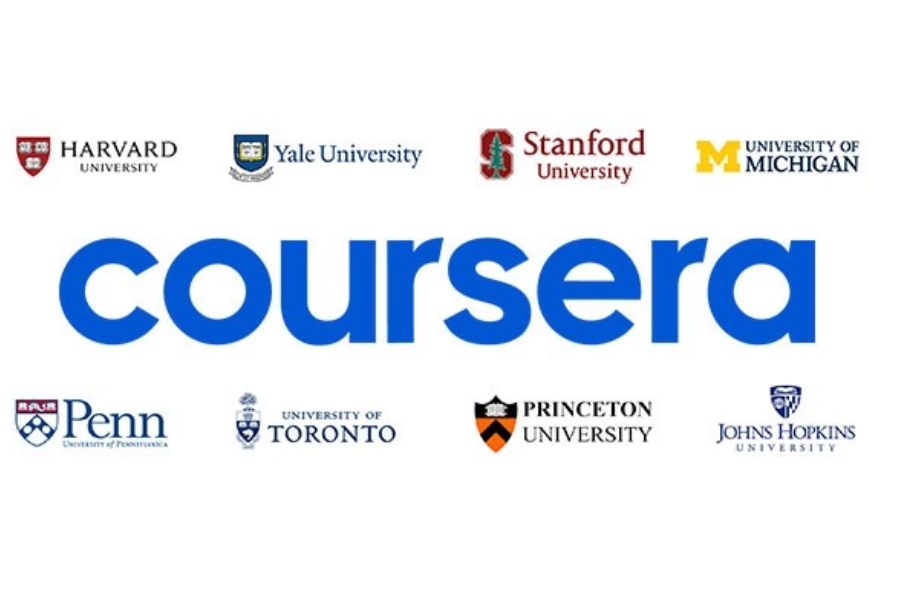
What certificates are most popular on Coursera today
Coursera offers a wide range of professional certificates that are popular among learners seeking to acquire job-ready skills. As of now, the following certificates are among the most sought-after:
Most Popular Certificates on Coursera
- Google Data Analytics
- This certificate equips learners with essential skills in data cleaning, analysis, and visualization using tools like Tableau and programming languages such as R and SQL. It is designed for those aiming for entry-level data analyst positions.
- Google Project Management
- This program focuses on Agile project management principles, particularly Scrum, and teaches strategic communication skills through practical scenarios, making it ideal for aspiring project managers.
- Google UX Design
- Covering the fundamentals of user experience design, this certificate guides students through creating a UX portfolio, including projects for mobile apps and websites.
- Google IT Support
- This program prepares learners for entry-level IT support roles, covering topics such as computer assembly, networking, and troubleshooting.
- IBM Data Science
- This certificate helps learners develop skills in data science and machine learning without requiring prior knowledge of programming or computer science.
- Facebook Marketing Analytics
- Aimed at those interested in marketing analytics, this certificate prepares students to analyze marketing data and make informed decisions.
- Google IT Automation with Python
- This program teaches automation skills using Python, Git, and cloud management, catering to those looking to advance their IT careers.
- IBM Data Analyst
- Over eight courses, this certificate builds skills needed for entry-level data analyst roles, focusing on data manipulation and analysis using tools like Excel and SQL.
- IBM Cybersecurity Analyst
- This program prepares students for roles in cybersecurity, covering incident response, forensics, and data protection.
- Intuit Bookkeeping
- This certificate provides the skills necessary for a career in bookkeeping, including preparation for the Intuit Certified Bookkeeping Professional exam.
- Google Digital Marketing & E-commerce
- This program teaches the fundamentals of digital marketing and e-commerce, preparing students for various roles in the digital economy.
- Meta Social Media Marketing
- This certificate focuses on marketing strategies for social media platforms, ideal for those looking to enter the marketing field.
- DeepLearning.AI TensorFlow Developer
- This program is designed for those interested in deep learning and neural networks, focusing on TensorFlow as a development framework.
These certificates are recognized globally and are designed to help learners gain practical skills that can enhance their employability in various fields, including data science, IT, marketing, and project management. Most of these programs are self-paced and can be completed in a few months, making them accessible for individuals seeking to upskill quickly.
How long does it typically take to complete a professional certification on Coursera
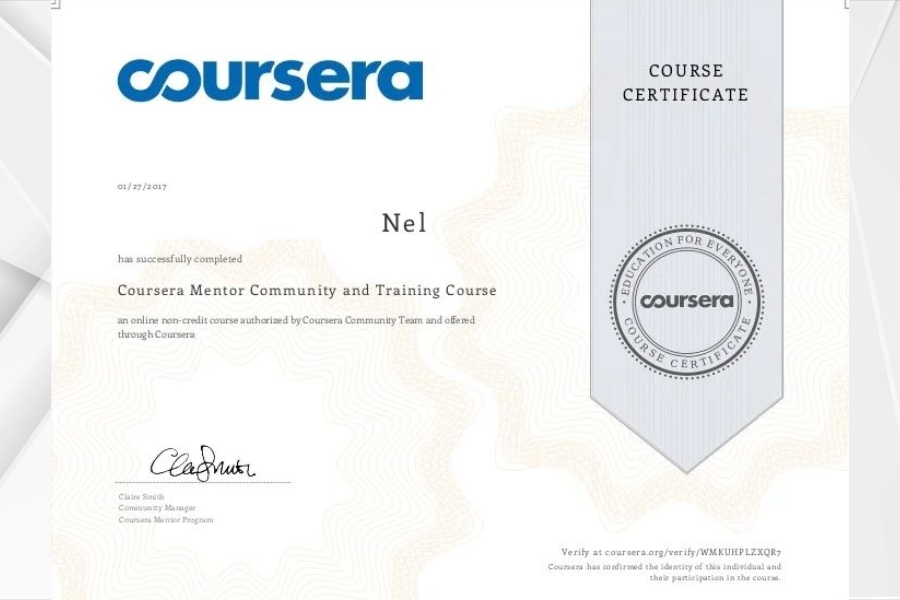
How long does it typically take to complete a professional certification on Coursera
The time it takes to complete a professional certification on Coursera varies significantly based on several factors, including the specific program, the learner’s prior knowledge, and the amount of time dedicated to studying each week.
Typical Completion Times
- General Duration: Most professional certificates on Coursera are designed to be completed in less than 6 months if you study at a flexible pace of around 10 hours per week. This means that if you adhere to this schedule, you can expect to finish a program in approximately 2 to 6 months depending on the complexity of the content and your familiarity with the subject matter.
- Accelerated Completion: Some learners have reported completing specific programs much faster. For example, one individual completed a Google Cybersecurity certificate in just 5 days, while others have managed to finish various certificates in under 10 days by dedicating significant time and effort
- Full-Time Commitment: If a learner treats the certification as a full-time job, dedicating 8 hours a day, they could potentially finish certain programs in as little as 3 to 4 weeks. Conversely, those who work full-time and can only commit 2-3 hours per week might take 6 to 8 months to complete the same program.
Summary of Factors Influencing Duration
- Prior Knowledge: Learners with relevant background knowledge or experience may progress more quickly than beginners.
- Study Commitment: The number of hours dedicated to studying each week greatly affects completion time. More intensive study leads to faster completion.
- Program Structure: Different programs have varying numbers of courses and content depth, which also influences how long it takes to complete them.
In conclusion, while many professional certificates on Coursera are structured to be completed in a few months with a part-time commitment, individual completion times can vary widely based on personal circumstances and study habits.
What are the best strategies to finish a Coursera certification quickly

What are the best strategies to finish a Coursera certification quickly
Here are some effective strategies to finish a Coursera certification quickly:
Understand the Course Structure and Payment Model
- Coursera courses are typically organized into a certification program with multiple courses.
- You get a 7-day free trial to explore the course. After that, you are charged a monthly fee (e.g. $49/month for the Google Cybersecurity Certificate) until you complete all the courses and earn the certificate.
- The faster you finish all the courses, the less you pay. Some courses may charge you the first month’s fee even if you complete in under 7 days.
Prepare Before Starting
- If you have prior knowledge in the subject area, review the course syllabus and materials beforehand.
- Watch the course videos at 1.25x-2x speed to cover more content quickly.
- Use the mobile app to learn on-the-go when you have spare time.
Optimize Your Learning Process
- Set specific daily goals, like completing a module or assignment each day.
- Create a dedicated study space free of distractions.
- Schedule course time on your calendar and stick to it.
- Take notes actively to boost comprehension and retention.
- Focus on one task at a time without multitasking.
- Take short breaks periodically to re-energize your brain.
Leverage Course Resources
- Use the discussion forums to ask questions and get help when stuck.
- Complete all required assignments and labs – don’t skip them.
- Take quizzes multiple times to master the concepts
Stay Motivated and Accountable
- Share your course progress with friends and family to stay motivated.
- Remind yourself of the value of completing the certification, even if it’s not the most prestigious.
- Don’t compare your learning pace to others – focus on thoroughly learning the material at your own pace.
By following these strategies and optimizing your learning process, you can complete Coursera certifications more efficiently. However, the most important thing is to focus on learning the material well, not just rushing through for the certificate.
Are there any free courses on Coursera that can help me get started with AI?
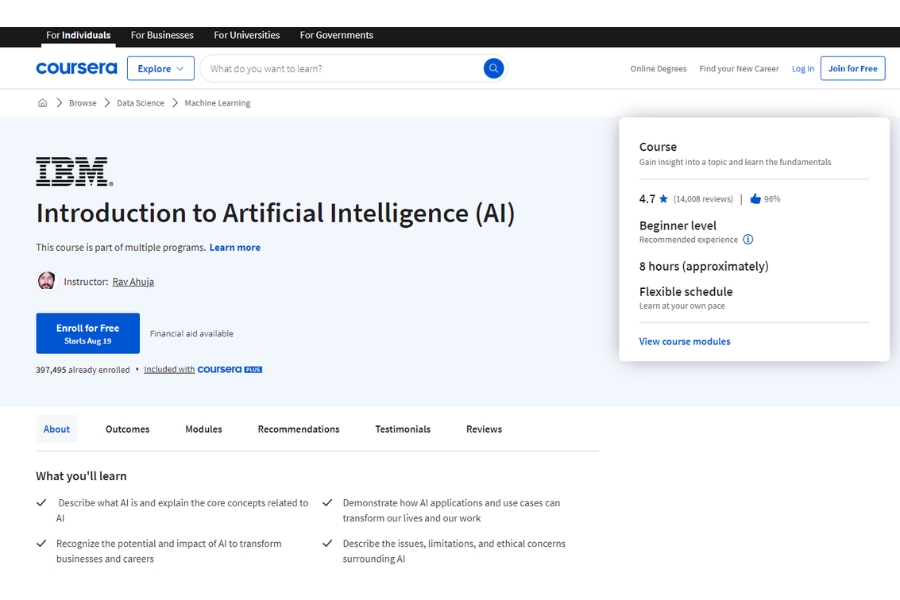
Are there any free courses on Coursera that can help me get started with AI
Coursera offers a variety of free courses that can help you get started with artificial intelligence (AI). Here are some notable options:
Top Free AI Courses on Coursera
- AI For Everyone
- Instructor: Andrew Ng
- Duration: Approximately 4 hours
- Description: This course provides a non-technical introduction to AI, covering its applications and implications in various sectors. It’s suitable for anyone looking to understand AI’s impact on business and society.
- Certificate: Available for purchase, but the course content can be accessed for free without a certificate.
- Introduction to Artificial Intelligence (AI)
- Instructor: Rav Ahuja (IBM)
- Duration: Approximately 4 weeks
- Description: This course covers fundamental AI concepts, including machine learning, deep learning, and neural networks. It also discusses the ethical implications and potential applications of AI.
- Certificate: Available for purchase, but you can audit the course for free.
- Machine Learning
- Instructor: Andrew Ng
- Duration: Approximately 11 weeks
- Description: A comprehensive introduction to machine learning, this course includes supervised and unsupervised learning, best practices in machine learning, and practical applications.
- Certificate: Available for purchase; auditing the course is free.
- Generative AI for Everyone
- Instructor: DeepLearning.AI
- Duration: Approximately 6 hours
- Description: This course focuses on generative AI technologies, including how they work and their applications across various fields.
- Certificate: Available for purchase, but the course can be accessed for free without a certificate.
How to Access These Courses
To enroll in these courses, simply visit Coursera’s website, search for the course titles, and select the option to “Audit” the course. This allows you to access the course materials for free, although you will not receive a certificate unless you pay for it.Additionally, Coursera offers financial aid options for those who may need assistance with course fees, which can be a helpful resource if you decide to pursue a certificate later on.These courses are a great starting point for anyone interested in AI, providing foundational knowledge and skills that can be built upon in more advanced studies.
How Coursera Professional Certificates Compare to Traditional Degrees

How Coursera Professional Certificates Compare to Traditional Degrees
Coursera offers a variety of certificate programs that provide career-focused education and skill development. Here’s how Coursera Professional Certificates compare to traditional university degrees:
Course of Study
- Professional Certificates focus on developing job-ready skills in specific career fields like IT, business, data science, etc.
- University degrees typically require completing general education courses before specializing in a major discipline.
Length
- Professional Certificates take much less time than a bachelor’s degree, usually 3-7 months.
- Bachelor’s degrees take about 4 years of full-time study to complete.
Cost
- Professional Certificates cost anywhere from $50/month to $6,000 total.
- Bachelor’s degrees cost significantly more, averaging $10,740/year at public universities and $38,070/year at private universities.
Benefits
- Professional Certificates provide practical skills that make graduates more employable.
- Degrees qualify graduates for a wider range of jobs, with an estimated 50% requiring a degree.
Hiring Impact
- 86% of employers agree that a professional certificate strengthens a candidate’s job application.
- 74% say a professional certificate would positively influence their hiring decision.
- 63% say a professional certificate would positively influence their decision between two degree-holding candidates.
In summary, Coursera Professional Certificates offer a more affordable, flexible path to developing in-demand career skills compared to a traditional degree. While degrees open doors to a wider range of jobs, professional certificates provide a valuable credential that many employers find appealing.
Which Coursera certification is best for beginners

Which Coursera certification is best for beginners
For beginners looking to earn a Coursera certification, several options stand out due to their accessibility, comprehensive content, and recognition in the job market. Here are some of the best certifications suited for beginners:
Top Coursera Certifications for Beginners
- Google Data Analytics Professional Certificate
- Duration: 3-6 months
- Cost: Free enrollment
- Skills Gained: Data analysis, data visualization, data cleaning, and SQL.
- Overview: This program is highly popular, with over 2 million enrollments. It prepares you for roles such as Data Analyst and Associate Data Analyst, emphasizing hands-on projects and portfolio development.
- Google IT Support Professional Certificate
- Duration: 3-6 months
- Cost: Free enrollment
- Skills Gained: Troubleshooting, customer service, networking, security, and system administration.
- Overview: This certification is designed for those interested in starting a career in IT support, providing foundational knowledge and skills needed for entry-level positions.
- Google Cybersecurity Professional Certificate
- Duration: 3-6 months
- Cost: Free enrollment
- Skills Gained: Network security, Python programming, and risk management.
- Overview: This program equips you with essential cybersecurity skills, making it suitable for those looking to enter the growing field of cybersecurity.
- Foundations of Digital Marketing and E-commerce
- Duration: Approximately 24 hours
- Cost: Free enrollment
- Skills Gained: E-commerce strategies, customer outreach, and marketing analytics.
- Overview: Offered by Google, this course is perfect for beginners interested in digital marketing and provides a solid foundation for further studies in the field.
- Introduction to Programming with Python
- Duration: Varies (short course)
- Cost: Free enrollment
- Skills Gained: Basic programming concepts, Python syntax, and problem-solving.
- Overview: This course is ideal for those new to programming, providing a gentle introduction to coding with Python, one of the most popular programming languages.
These certifications are not only beginner-friendly but also provide valuable skills that are in demand across various industries. They are designed to be completed at your own pace, making them accessible for anyone looking to start a new career or enhance their current skill set.
How much does a Coursera certificate usually cost?

How much does a Coursera certificate usually cost
Coursera offers a variety of pricing options for its courses and certificates, which can vary significantly depending on the type of course and the payment model chosen.
Cost Breakdown
- Individual Courses: The cost for individual courses typically ranges from $49 to $300. Most courses fall into the lower end of this spectrum, with many popular courses priced around $30 to $100. For example, well-known courses like Stanford’s Machine Learning may cost around $80.
- Specializations: These are series of courses designed to deepen knowledge in a specific area. Specializations usually operate on a subscription model, costing between $39 and $79 per month. Most offer a 7-day free trial, allowing users to explore the content before committing financially.
- Coursera Plus: This subscription plan provides access to a vast library of courses (over 7,000) and costs $59 per month or $399 per year. This plan is advantageous for learners who wish to earn multiple certificates, as it allows unlimited access to courses within the subscription period.
- Professional Certificates: These programs also typically follow a subscription model, costing around $39.99 per month. They are designed to help learners gain specific skills and often include hands-on projects.
Additional Considerations
- Financial Aid: Coursera offers financial aid for learners who demonstrate need. Applicants must fill out a form explaining their situation, and if granted, this can significantly reduce or eliminate course fees.
- Free Courses: Many courses can be audited for free, allowing access to video lectures and materials, but without a certificate. To receive a certificate for these courses, a fee (generally starting at $49) is require
In summary, the cost of obtaining a Coursera certificate can range from $49 for individual courses to $399 per year for the Coursera Plus subscription, depending on the learner’s choices and needs.
How Coursera’s payment structure works for certificates

How Coursera’s payment structure works for certificates
Coursera offers a variety of payment structures for its certificate programs, which cater to different learning needs and preferences. Here’s an overview of how it works:
Course Payment Structure
- Free Auditing: Most courses on Coursera can be audited for free, allowing learners to access course materials without payment. However, to receive a certificate or access graded assignments, students must pay a fee.
- Signature Track: For a fee typically ranging from $30 to $100, students can enroll in the Signature Track, which includes graded assignments and exams. Upon successful completion, they receive a verified certificate that includes the course name and the institution’s branding.
- Specializations and Professional Certificates: These are more extensive programs that consist of multiple courses. Students usually pay a monthly subscription fee, which starts at about $39 to $79, depending on the specialization. A seven-day free trial is often available, after which the monthly fee applies.
- Coursera Plus: This subscription model allows access to over 7,000 courses for a flat fee of $59 per month or $399 per year. This plan is advantageous for learners who wish to take multiple courses, as it provides unlimited certificates without additional costs per course.
Payment Methods
Coursera accepts various payment methods, including major credit cards and PayPal (though PayPal availability may vary by region). For businesses, payments can be made via invoice for team plans.
Financial Aid
Coursera offers financial aid for learners who demonstrate need. To qualify, applicants must submit a brief application explaining their financial situation. This option can help reduce the cost of courses for eligible students.
Overall, Coursera’s payment structure is designed to be flexible, accommodating both casual learners and those seeking in-depth professional development. The ability to audit courses for free, combined with various subscription and one-time payment options, makes it accessible to a wide audience.
Can I get a refund if I do not receive my Coursera certificate within the specified time?
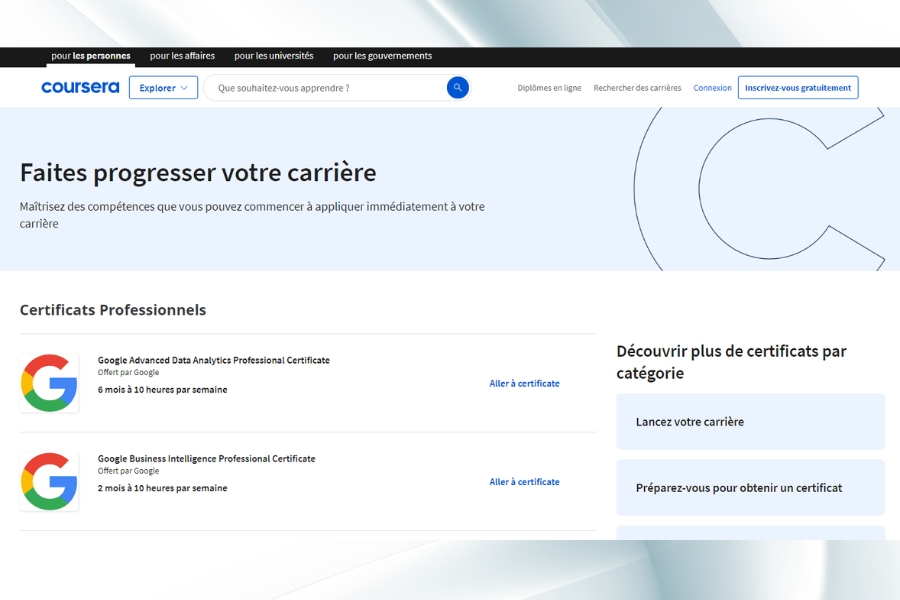
Can I get a refund if I do not receive my Coursera certificate within the specified time
If you do not receive your Coursera certificate within the specified time, your eligibility for a refund depends on several factors outlined in Coursera’s refund policy.
- Refund Period: For one-time course enrollments, you can request a full refund within 14 days of payment. However, if you have already earned your course certificate, you are not eligible for a refund, regardless of the time elapsed since payment.
- Certificate Issuance: If you do not earn your course certificate within 180 days of registration, your registration will expire, and you will need to pay to re-enroll in order to complete the course and earn the certificate.
- Guided Projects: For guided projects, if you do not receive your completion certificate within 180 days, your registration will also expire, necessitating re-enrollment for completion.
- Special Considerations: Refunds are not available for users who violate Coursera’s Terms of Use or Honor Code, even if they request a refund within the designated period.
In summary, if you have not received your certificate and are within the 14-day refund window without having earned the certificate, you can request a refund. If you have earned the certificate or are beyond the 14-day period, you are not eligible for a refund.
Which Coursera certificate is best for career growth?

Which Coursera certificate is best for career growth
Several Coursera certificates stand out for their potential to enhance career growth, particularly those offered by well-known companies such as Google, IBM, and Meta. Here are some of the top certificates that can significantly boost your career prospects:
Top Coursera Certificates for Career Growth
- Google Digital Marketing & E-commerce Professional Certificate
- This course covers essential skills in online marketing and e-commerce, preparing you for roles like digital marketing coordinator and SEO specialist. It emphasizes practical skills using tools like Google Analytics and Shopify, making it highly relevant in today’s digital economy.
- Google Data Analytics Professional Certificate
- Ideal for beginners, this certificate teaches data analysis, data visualization, and data cleaning. With over 2 million enrollments, it equips learners for roles such as Data Analyst, with an average salary potential of around $92,000 annually.
- IBM Data Science Professional Certificate
- This program provides foundational knowledge in data science, including machine learning and data visualization. It prepares you for various data-related roles, making it a strong choice for those looking to enter the tech field.
- Google Project Management Professional Certificate
- This course offers comprehensive training in project management, covering methodologies and tools essential for managing projects effectively. It can lead to positions such as project manager and project coordinator.
- Google Cybersecurity Professional Certificate
- With the increasing demand for cybersecurity professionals, this certificate provides critical skills in protecting systems and data. It prepares you for roles in cybersecurity, a rapidly growing field.
- Meta Front-End Developer Professional Certificate
- This program focuses on front-end development skills, including HTML, CSS, and JavaScript, preparing you for web development roles. Given the high demand for web developers, this certificate can be a valuable asset.
- AWS Cloud Solutions Architect Professional Certificate
- Offered by Amazon Web Services, this course prepares you for roles in cloud architecture, a field that continues to expand as more companies migrate to cloud solutions.
Choosing the right Coursera certificate can significantly impact your career trajectory. Programs from reputable companies not only provide job-ready skills but also enhance your resume, making you a more attractive candidate in competitive job markets. Consider your career goals and the skills you wish to acquire when selecting a program to ensure it aligns with your professional aspirations.
Which Coursera certification is most recommended for technology beginners

Which Coursera certification is most recommended for technology beginners
For technology beginners looking to enhance their skills through Coursera certifications, several highly recommended options stand out:
- Google IT Support Professional Certificate: This is a comprehensive 5-course program designed to prepare learners for entry-level roles in IT support. It covers essential skills such as computer networking, system administration, and troubleshooting. Completing this certificate can also lead to a dual credential with CompTIA A+ certification, which is valuable for IT job seekers.
- IBM AI Developer Professional Certificate: This certification focuses on foundational skills in artificial intelligence and machine learning. It covers various topics, including deep learning and natural language processing, making it suitable for beginners interested in AI technologies.
- Microsoft Introduction to Computers: This course provides a basic understanding of computer architecture and operating systems. It is ideal for those who are completely new to technology and want to build a solid foundation.
- Information Technology (IT) Fundamentals for Everyone by IBM: This course offers a broad overview of IT concepts, including cloud computing and databases. It is designed for beginners who want to understand the fundamentals of information technology.
- Python for Data Science, AI & Development by IBM: This course teaches Python programming, which is essential for data science and AI. It’s a great starting point for beginners who want to delve into programming and data analysis.
These certifications not only provide essential skills for entry-level positions but also enhance employability by offering recognized credentials from reputable organizations.
Are there any Coursera certificates focused on digital marketing for beginners?

Are there any Coursera certificates focused on digital marketing for beginners
Coursera offers several certificates focused on digital marketing that are suitable for beginners. Here are some of the key options:
- Google Digital Marketing & E-commerce Professional Certificate
This comprehensive program consists of seven courses designed to provide foundational knowledge in digital marketing and e-commerce. It covers essential topics such as user journeys, digital marketing channels, and tools like Google Ads and Analytics. The course can be completed in approximately six months with a commitment of less than 10 hours per week. - Foundations of Digital Marketing and E-commerce
This course is part of the Google Professional Certificate and focuses on the basics of digital marketing and e-commerce. It includes four modules that teach about marketing strategies, customer journeys, and performance measurement. This course is designed for beginners and can be completed in 1 to 4 weeks. - Attract and Engage Customers with Digital Marketing
This course, also from Google, consists of four modules that cover search engine optimization (SEO), search engine marketing (SEM), and strategies to enhance customer engagement. It aims to equip learners with the skills needed for entry-level positions in digital marketing and can be completed in 1 to 4 weeks. - Digital Marketing Specialization
Offered by the University of Illinois, this specialization covers various aspects of digital marketing, including social media marketing and digital analytics. It provides a more in-depth understanding and can be completed in 3 to 6 months. - Google Ads for Beginners
This is a guided project that focuses specifically on Google Ads, suitable for those looking to learn about online advertising quickly. It can be completed in less than 2 hours.
These courses are structured to help beginners build foundational skills and prepare for entry-level roles in digital marketing. Each course offers a certificate upon completion, which can be shared on professional platforms like LinkedIn.
Which Coursera certification is best to learn data analysis

Which Coursera certification is best to learn data analysis
Coursera offers several highly regarded data analytics certification programs, each suited for different learning paths and career goals. Here are the top options for 2024:
1. Google Data Analytics Professional Certificate
- Best for Beginners: This program is designed for individuals with no prior experience in data analytics. It covers essential skills such as data cleaning, visualization, and analysis using tools like SQL and R.
- Duration: Approximately 6 months at 10 hours per week.
- Cost: $294 (or $49 per month) .
2. IBM Data Analyst Professional Certificate
- Best for Mastering SQL: This certification focuses on building skills in Python, SQL, and Excel, making it ideal for those looking to enter the field with a strong foundation in data analysis.
- Duration: About 4 months at 10 hours per week.
- Cost: $156 (or $39 per month) .
3. Microsoft Power BI Data Analyst Professional Certificate
- Best for Aspiring Business Intelligence Professionals: This course provides in-depth training in Power BI, focusing on data visualization and report generation, preparing learners for the PL-300 certification exam.
- Duration: Approximately 5 months at 10 hours per week.
- Cost: $245 (or $49 per month) .
4. IBM Data Analytics with Excel and R Professional Certificate
- Best for Beginners in R Programming: This program is suitable for those new to R and covers foundational data analytics skills.
- Duration: Similar to other IBM programs, around 4 months.
- Cost: Typically aligns with IBM’s pricing structure .
For those starting out, the Google Data Analytics Professional Certificate is highly recommended due to its comprehensive approach and flexibility. If you have a specific interest in SQL and Python, the IBM Data Analyst Professional Certificate is a strong choice. For a focus on business intelligence and data visualization, consider the Microsoft Power BI Data Analyst Professional Certificate. Each program offers a structured path to acquiring essential skills in data analysis, making them valuable for both beginners and those looking to enhance their expertise.
Which Coursera certification is ideal for people new to cybersecurity

Which Coursera certification is ideal for people new to cybersecurity
For individuals new to cybersecurity, several Coursera certifications stand out as ideal starting points:
- Google Cybersecurity Professional Certificate
This program is structured to provide foundational skills necessary for an entry-level cybersecurity position. It begins with the “Foundations of Cybersecurity” course, which covers the field’s history and significance. The program is designed for absolute beginners and offers a clear, structured approach to learning essential cybersecurity concepts, making it highly recommended for newcomers. - IBM Cybersecurity Analyst Professional Certificate
This comprehensive eight-course series covers a wide range of cybersecurity topics, from fundamental concepts to advanced techniques. It includes practical exercises and case studies, which help learners solidify their understanding and prepare for real-world challenges. This certificate is also well-suited for beginners looking to delve deeper into the field. - Foundations of Cybersecurity
Offered by Google, this course provides a broad introduction to key cybersecurity concepts. It covers essential topics such as network security and risk management, making it a good choice for those starting their cybersecurity journey. - Cybersecurity for Everyone
This course, provided by the University of Maryland, offers insights into various aspects of cybersecurity, including cyberattacks and security strategies. It’s a beginner-friendly option that provides a solid overview of the field.
These courses not only equip learners with fundamental knowledge but also prepare them for further studies or entry-level positions in cybersecurity.
How long do I have to receive my Coursera certificate after enrolling?
Receiving Your Coursera Certificate
After completing a Coursera course, you will receive your certificate shortly, usually within a few days. Here are the key points about getting your Coursera certificate:
- If you complete the course requirements before the official deadline, you will receive your verified certificate immediately upon completion. This includes passing all graded assignments and quizzes.
- If the course has peer-graded assignments, you will have to wait for your assignment to be graded by your peers before receiving the certificate, even if you finished the course early. The peer grading process can take a week or more.
- Coursera certificates are issued as downloadable digital PDF files. You can download and print them yourself if needed.
- Coursera only offers digital certificates, not physical copies that are mailed.
- Your certificate will include your name, the course name, the institution offering the course, and the date of completion.
- Coursera certificates do not expire and are valid indefinitely.
So in summary, if you complete a Coursera course, including all graded assignments, before the deadline, you should receive your digital certificate within a few days. If there are peer-graded assignments, expect a slightly longer wait time for your peers to grade your work. But in most cases, you will get your certificate shortly after finishing the course requirements.


